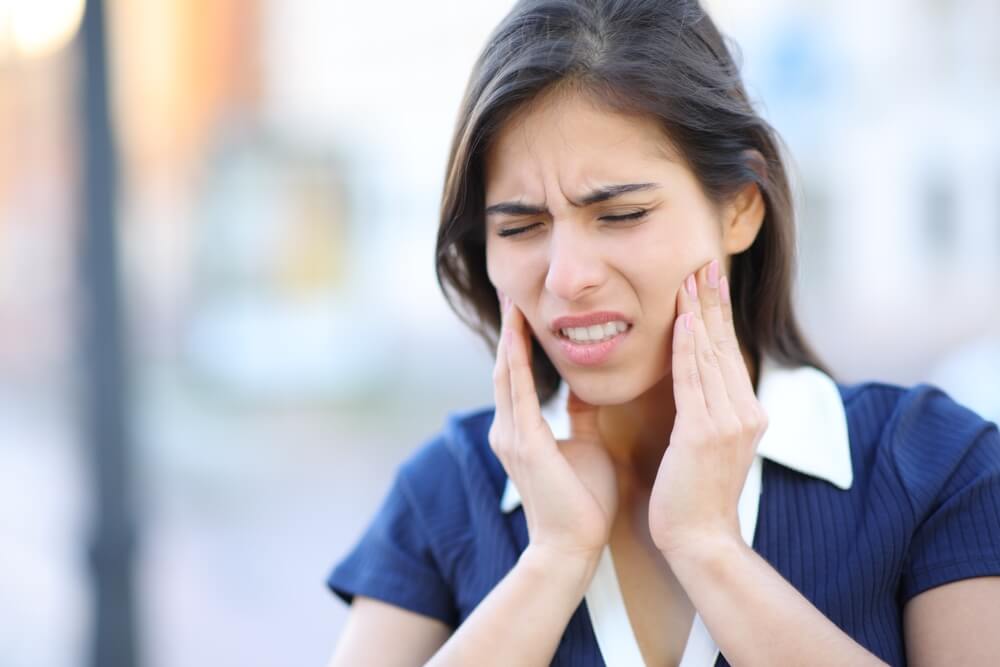Jaw Pain?
Get relief at Harrisburg Smiles
If you are experiencing strange issues with your jaw and mouth, such as clicking or popping sounds when moving your jaw or unexplained headaches, you may be suffering from TMJ (Temporomandibular Joint Disorder). If you’re experiencing TMJ symptoms, Dr. Cherukuri can help. We have years of experience treating patients with TMJ, and we have solutions that will get you out of pain.
TMJ can cause a number of symptoms, like radiating jaw pain and discomfort, restricted jaw range of motion, and more, and it’s often tricky to diagnose and treat. But at Harrisburg Smiles, Dr. Naveen Cherukuri can help. We have years of experience treating patients with TMJ, and we can help you get the relief you need to get your life back to normal.
Signs & Symptoms of TMJ/TMD
TMJ refers to a number of different issues with your temporomandibular joint. This is the joint that is responsible for moving your jaw and allowing you to speak, eat, chew, and perform other jaw-related movements. It is located at the upper part of your jaw, next to your ears. If your temporomandibular joint becomes inflamed, infected, knocked out of place, or is otherwise damaged, you could experience a number of painful symptoms, like difficulty moving your jaw, migraine headaches, jaw stiffness, and more.
Causes of TMJ/TMD
The most common cause of TMJ in adults is bruxism, also known as teeth grinding. Grinding your teeth regularly puts extra strain on your teeth, as well as your temporomandibular joint, which can cause TMJ/TMD. Arthritis can also cause TMJ/TMD, if it affects the temporomandibular joint. Another common cause of TMJ is damage to the joint itself. For example, a slip and fall that impacts the temporomandibular joint directly could knock it out of position, or cause damage to the joint, leading to TMJ.
TMJ/TMD Treatment Options
If you have TMJ, the best treatment option depends on the cause of the disorder. For patients with bruxism, night guards are prescribed to prevent teeth grinding and minimize stress on the temporomandibular joint. Patients with arthritis may benefit from anti-inflammatory medications or corticosteroid injections, which can help heal the joint and keep it in good conditions. For TMJ caused by injuries, rest may be all that’s needed to resolve the issue, but surgical intervention may be required, in rare cases.

